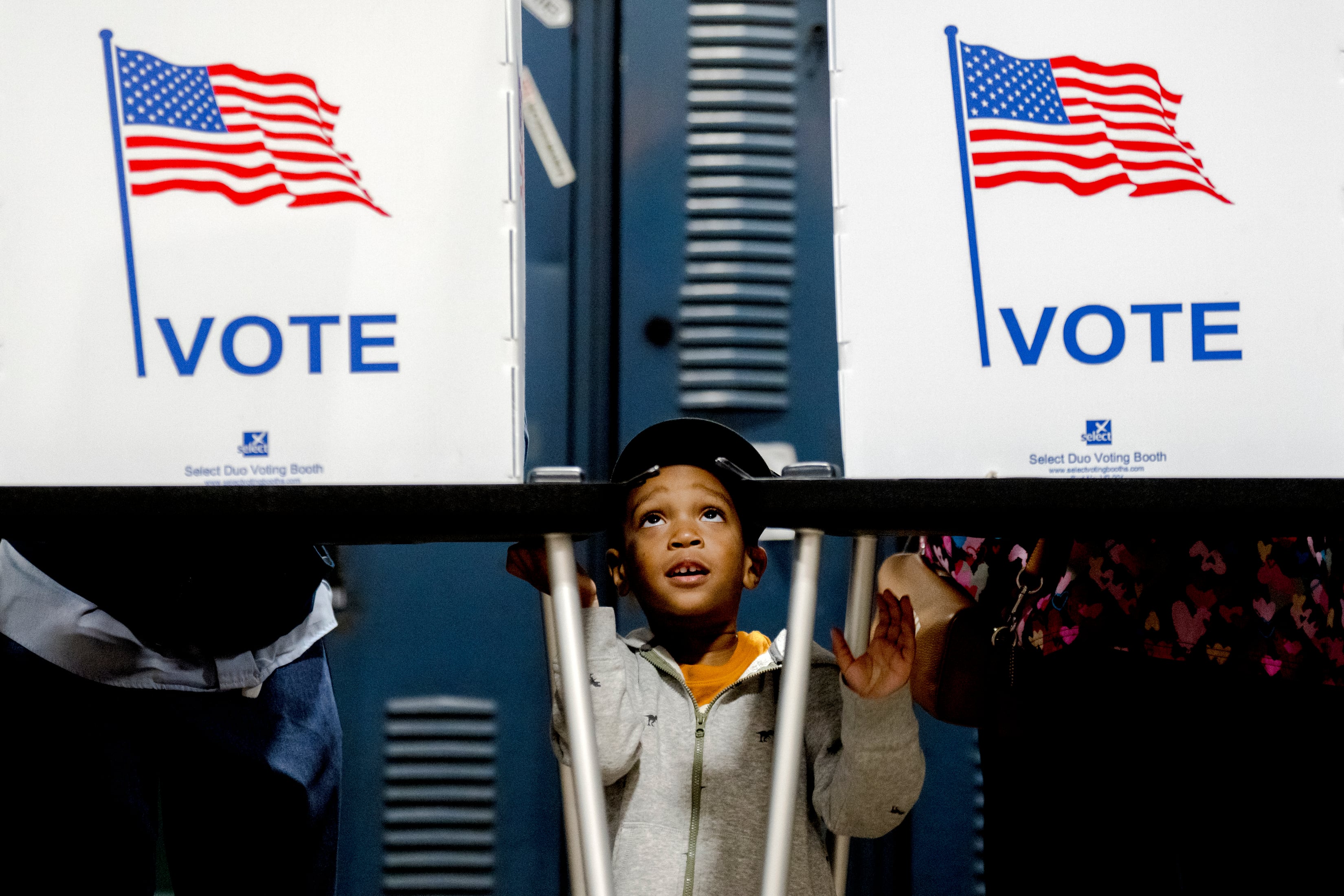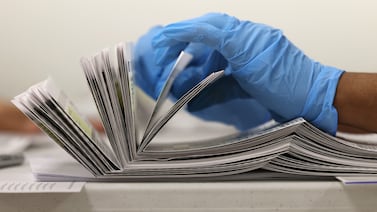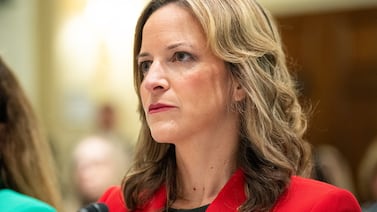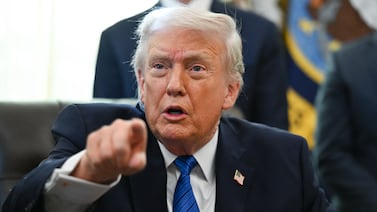Votebeat is a nonprofit news organization reporting on voting access and election administration across the U.S. Sign up for Votebeat Michigan’s free newsletter here.
Michigan ranked third in the country in voter turnout percentage last year, an achievement the state credits to major election reform and a strong voter education campaign.
In a first-of-its-kind “turnout report,” the Department of State highlights the effect of recent voter-approved constitutional amendments, noting an increase in turnout between 2020 and 2024, hundreds of thousands ballots cast by first-time voters and the more than 1.2 million who took advantage of the state’s new early-voting laws.
But some experts say the true driver of the gains was likely local election officials.
Corwin Smidt, interim director of Michigan State University’s Institute for Public Policy and Social Research, said that research typically held that early voting laws often don’t improve turnout much. About 255,000 early voters in Michigan hadn’t voted in 2020, the report found. But studies have found those who vote early typically planned to vote in their election anyway, and keeping an early-voting option open adds a significant burden on election officials.
Measuring the impact of any one state-level program is difficult, Smidt said, because Michigan’s elections are more decentralized than in most states. In Michigan, it’s up to city or township officials to run elections, rather than county leaders.
Local and county clerks did great work to educate voters, he said, but it’s difficult to know how much of that came out of local budgets and how much was state-supported. Livingston County Clerk Elizabeth Hundley said that she wasn’t aware of any statewide campaign, but that local clerks in her county worked hard to educate voters.

“They were on social media, in publications, on people’s water bills, doing whatever they could to make sure people knew what their rights were,” Hundley said. It paid off — Livingston had the second-highest turnout rate in the state: 86.4% of active registered voters.
Angela Benander, spokesperson for Secretary of State Jocelyn Benson, said the state’s efforts included partnerships with hundreds of local and national groups, including the Detroit Lions, Detroit Pistons, business partners, a college student task force, and more.
The data in the Department of State report is still helpful, Hundley said, because it helps clerks figure out where to focus their effort in future elections. But as the county’s lead election official, she already had access to local and county-level data.
Some observers saw the report — and its timing — as a move to raise the profile of the Department of State and Benson, who is a Democratic candidate for governor. Benson, who is leading some polls, has run up against attempts from Republican lawmakers to paint her as a lawbreaker who has run flawed elections, and has cited the conflict in her fundraising appeals.
“If they’re releasing a report like this, it’s probably much more targeted to primary voters and external stakeholders, people outside the state who would instantly accept this sort of assessment,” Smidt said.
Michael Miller, associate professor of political science at Barnard College, said it is not common for states to release these kinds of reports, particularly so many months after an election.
But Benander, the Benson spokesperson, said it was “quite a stretch to claim a political motive” for the timing of the release.
“When dealing with so many different data points, it takes time and effort to make sure everything is accurate,” Benander said in an email. “Last year around this time, we released a similar county-by-county report on 2022 youth turnout. We’re always looking for ways to share election data and information in ways that are accessible to Michiganders.”
One possible reason Michigan’s had higher participation in 2024 while other states saw a decrease from 2020’s record turnout is that swing state voters believe their votes matter more, Miller said. Michigan is often important in determining who wins the presidency, and the close 2020 result likely reinforced that view.
“If you live in West Virginia or North Dakota, you have a pretty good inkling of how the election is going to go,” he said.
Turnout was also likely up because Michigan got a lot of attention from both major presidential campaigns, in terms of visits and advertising, Miller said.
“Battleground voters love to bask in attention,” he added.
Hayley Harding is a reporter for Votebeat based in Michigan. Contact Hayley at hharding@votebeat.org.




